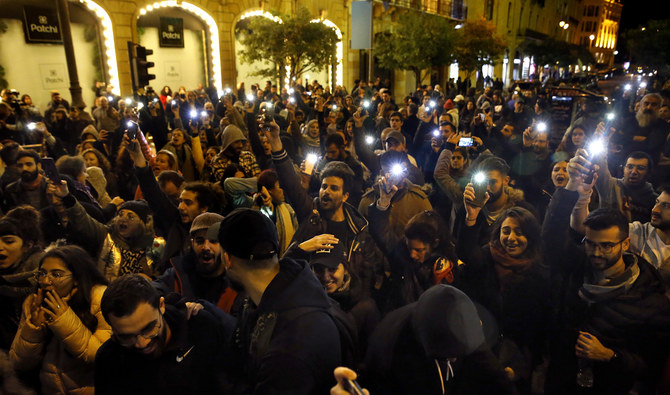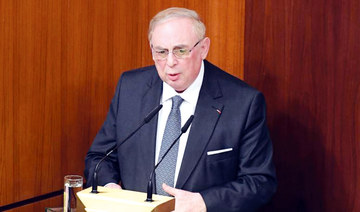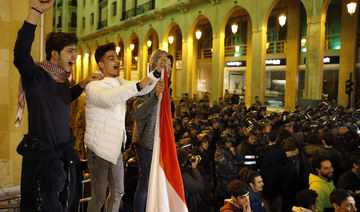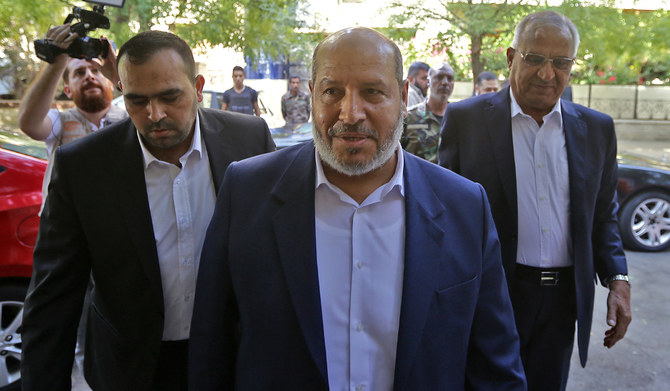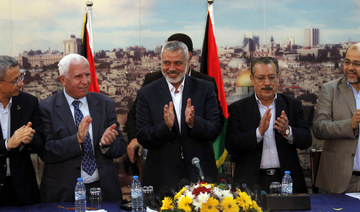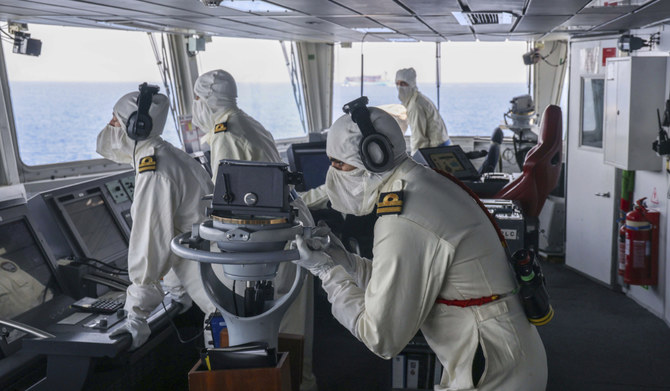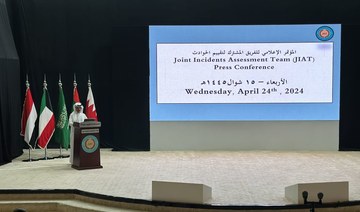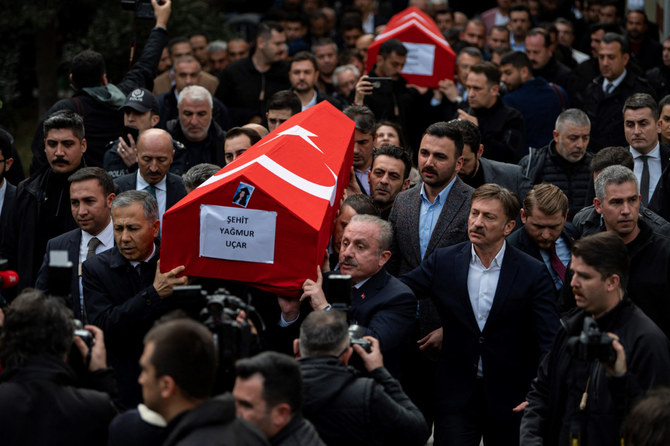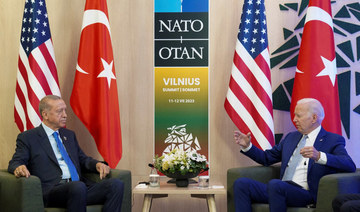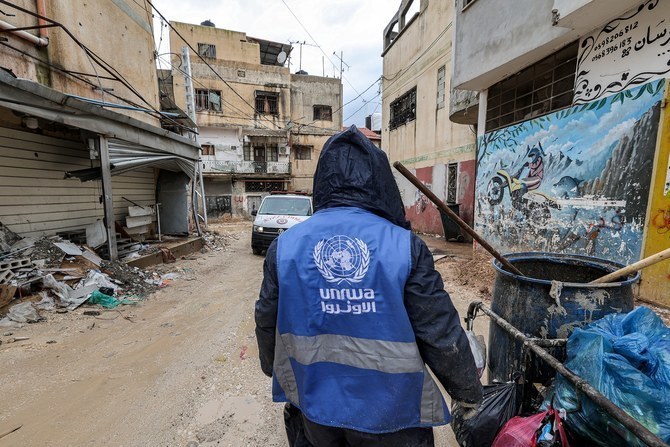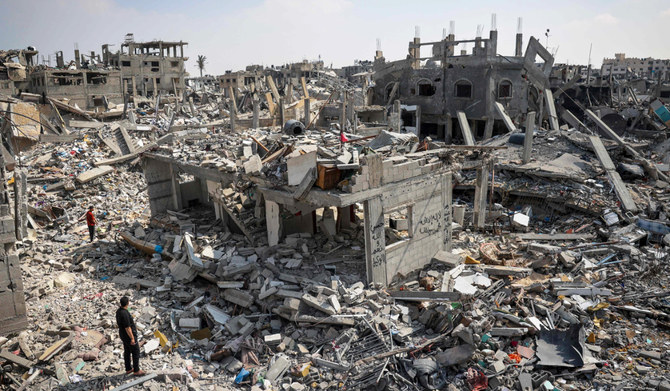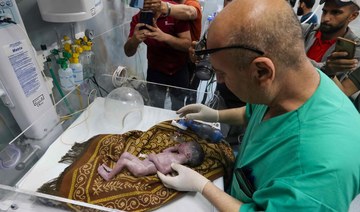BEIRUT: Lebanon is losing more than $70 million a day as a result of the political and economic crisis, ministers say. There has also been an alarming decline in imports and the 2019 budget deficit will be much greater than expected, they added.
Meanwhile private-sector bosses gathered to demand action, and revealed the devastating effects of the crisis on their businesses, which has forced many to cut wages or fire staff as they struggle to survive.
The country has been in turmoil since October 18, when protests began against the ruling elite. On October 29, Prime Minister Saad Hariri and his government resigned, but replacements are yet to be named, leaving the economy and banking system are in chaos.
“Public-sector employees will get paid before December 25 and their salaries for the next months are guaranteed, but there is a dramatic decline in state imports,” said caretaker Finance Minister Hassan Khalil. “The deficit will rise and 2020 budget figures will be reconsidered.”
Caretaker Economy Minister Mansour Bteish added: “The country is half-paralyzed. The total income per day is $150 million, which means the national economy is losing at least $70 to 80 million a day. The crisis has dramatically worsened and urgent solutions are needed.”
Owners of private businesses gathered in the heart of Beirut to demand action.
“The private sector in Lebanon represents 75 percent of the country’s revenues,” said Waddah Sadeq, owner of a marketing and advertising company. “Fifty percent of companies are in danger and might close amid the financial and economic crisis, due to the lack of a consensus to form a new government that could save the country.
“The private sector can only survive until the first quarter of 2020. There are 40,000 private companies in Lebanon with 850,000 employees providing for 500,000 families. About 5,000 employees have been dismissed, especially in the restaurant, tourism and services sectors.
“Factories are struggling to survive and if the situation does not improve, they will most certainly close. Imports have been blocked due to the banking restrictions and so the work of businesses relying on imports is suspended. What are politicians still waiting for?”
Pierre Issa, the cofounder of Arc-en-ciel, a non-profit organization that works with private companies, said: “Our state is making us pay taxes with no services in return. The situation of organizations such as ours has become very critical and we are stuck with two options: paying employees or paying taxes.”
Sahar, a restaurant owner, said: “Work has been severely affected. Suppliers are unable to withdraw their money from banks to meet our needs. People are avoiding eating at restaurants because they are being paid half their salaries or have been fired from their jobs.
“We are struggling to survive. This month I must cut my employees’ salaries in half because I do not want to fire any of them. But I do not know what I will have to do if the situation remains this bad in 2020.”
Architect Fouad Naayem said he had to let some staff go, and added: “I have kept only eight employees because I had to reduce expenses. Our work in Lebanon is paralyzed. If the economic stagnation continues, I will be forced to migrate.”
Nabil Kettaneh is the owner of Kettaneh Group, which was established in 1922 and sells cars, hospital equipment and home appliances.
“My concern today is to provide the salaries of 210 employees, given that the company is making zero revenues” he said “People have stopped buying cars due to the banking restrictions and the economic crisis. We want a government able to control the situation, save the national economy and restore banks’ trust. Our deposits are blocked . We cannot transfer money abroad to import goods.”
The International Support Group for Lebanon, which convened in Paris on Wednesday, said that the preservation of “Lebanon’s stability, security, sovereignty, political independence and territorial integrity requires the urgent formation of a competent and credible government to implement economic reforms.” The group added that the government must “be independent of regional crises and tensions,” and called for “the adoption of a reliable budget for 2020” as soon as possible.



